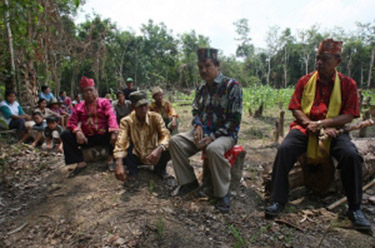How Sustainable is Biomass Production, Actually?

The EU has the goal of reducing the use of fossil fuels and using more biomass for energy production. To reduce negative impacts of the production of biomass, the EU has established sustainability requirements. In the current requirements, however, there are no criteria set forth for social issues or for water, ground and air quality.
The production of sustainable biomass is a common theme in CREM projects. Last month we finished a project about palm oil production in Indonesia and one about the cultivation of soy and sugar cane in Brazil.
Social, water, ground and air quality issues
The social, water, ground and air quality issues are precisely the issues that cause negative impacts. It is therefore very important to better monitor and document them. The EU criteria for the sustainability of biomass production also need to be sharpened.
Effects of Biomass Production on local communities
In cooperation with local organizations and communities, local impacts due to the production of biomass were identified. In Brazil (soy/sugar cane), the impacts were deforestation, soil, water and air pollution (through the use of agricultural chemicals) and related health problems, loss of land, marginalization of small producers and the loss of local food production. In the palm oil production in Indonesia, the negative consequences primarily affected the local population: loss of land, income and subsistence (food, medicine and materials), with many conflicts as a result. There was also often a loss of culture, infringements and violations of human rights (discrimination, violence, no right to organize).
Monitoring of Impacts
Impacts are rarely monitored. In Mato Grosso, Brazil, important data about water quality or health problems is often unavailable. Working with local partners, a system was developed to monitor these impacts. For the project in Indonesia, a list with social issue indicators was developed. For this list, local communities in Kalimantan were interviewed and CREM carried out desk research. A summarizing document for policy makers, companies and auditors contains a description of how to proceed with these social issues.
More info: Jolanda van Schaick

